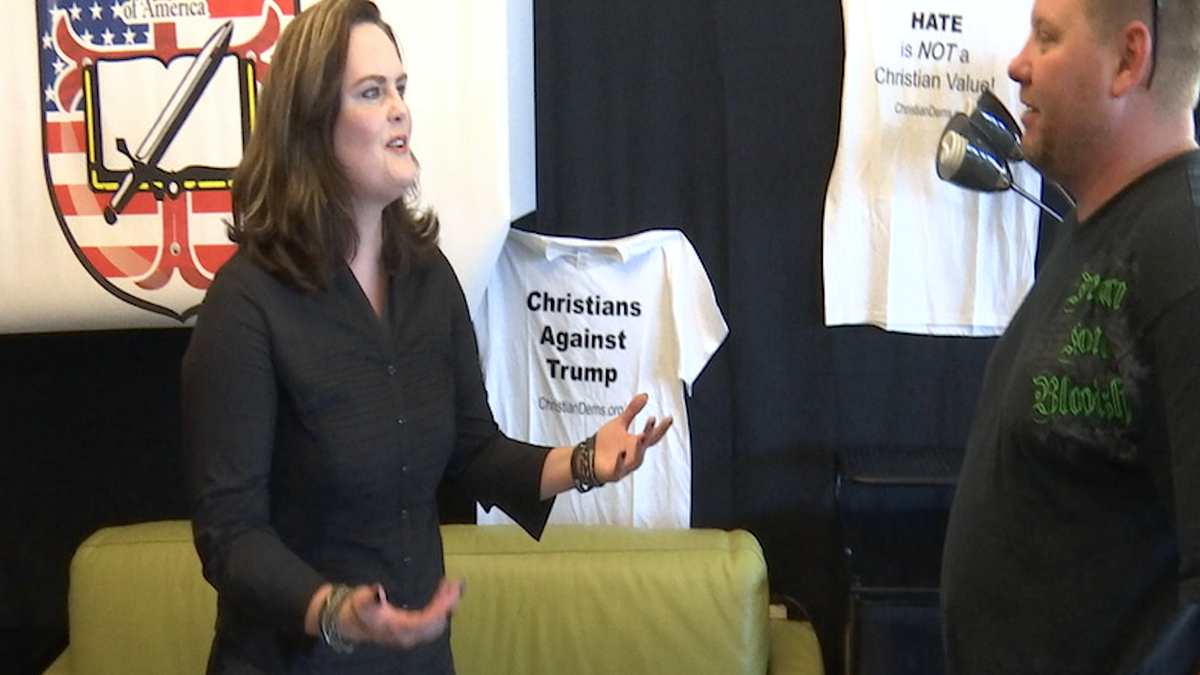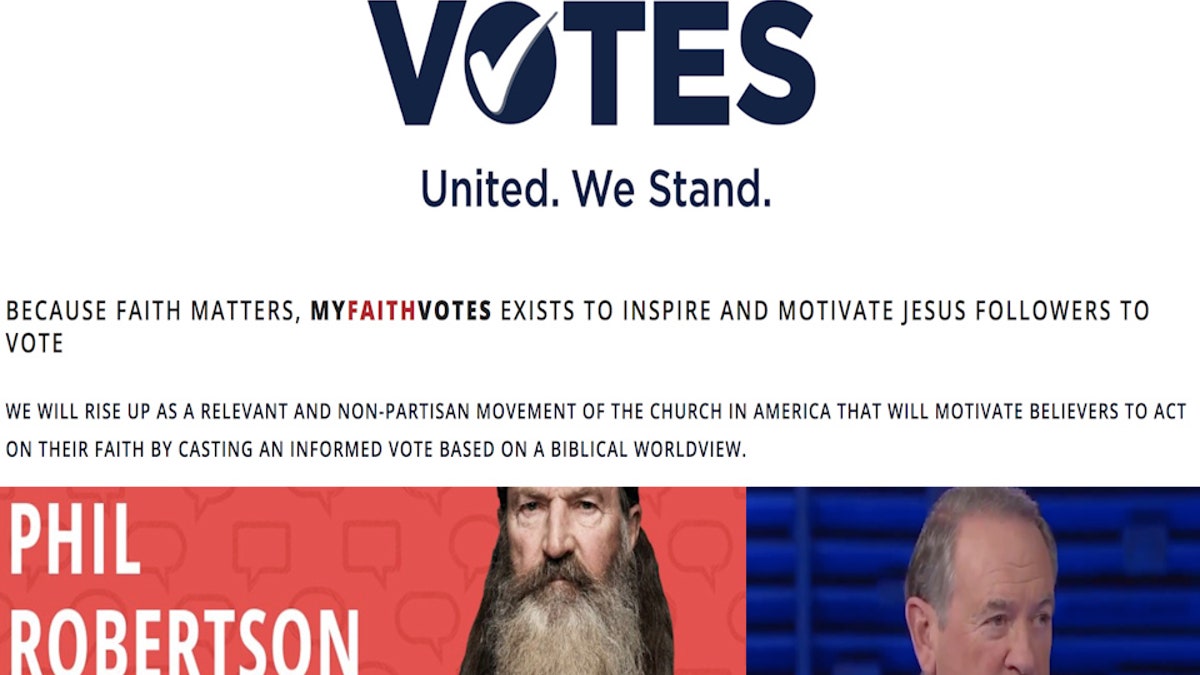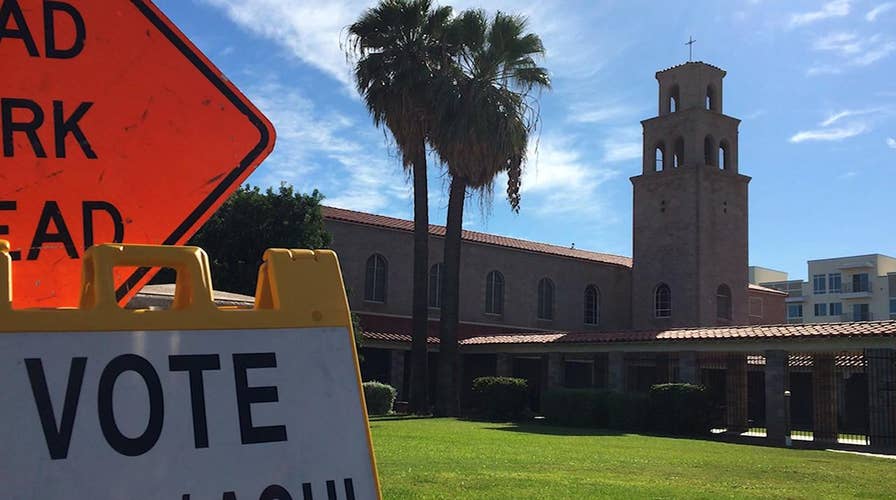GOP, Democrats hope to win evangelical vote on Election Day
While My Faith Votes leans more conservative in rallying voters, Christian Democrats of America seeing increase since Trump election.
PHOENIX – My Faith Votes, a group that is rallying evangelical voters, is passing out literature to college students, distributing videos in churches and promoting a model of “Think, Pray and Vote” via social media, churches and college campuses. Recently, the group even hosted a Facebook Live chat with Duck Dynasty’s Phil Robertson to talk about the midterms.
It’s all part of a $3.5 million effort to get evangelical voters from the pews to the polls on Election Day. Evangelicals are a key voting bloc but some believe they are becoming disenchanted by the political process and may stay home rather than vote on Tuesday for the midterms.
“We projected that there would be potentially as many as 50 million Christians who…would stay on the sideline,” said Jason Yates, CEO of My Faith Votes, which says it is non-partisan. “That is an overwhelming number and a huge amount of influence. So, we’re doing a number of things to really motivate and equip Christians to vote in these midterm elections.”
Yates said there are about 90 million evangelical Christians eligible to vote and between 25 million to 35 million who regularly don’t.
Dr. Donald Critchlow, an American political history professor at Arizona State University with a background in religious studies, said the evangelical vote is critical, particularly for Republicans in the primaries.
“Evangelical voters up until about 1980 on the national level, voted Democratic and then it began to swing Republican,” Critchlow said. “So, the Democrats, as a whole, have lost the evangelical vote but I think it’s critical for them. Republicans need to win the youth vote and they need to win the educated voter. For Democrats, they need to figure out a way of cutting into the white vote and a large part of that white vote is evangelical Christians.”
But, Christina Forrester, the founder of Christian Democrats of America, said Republicans have been losing ground with evangelical voters since President Trump was elected. She said at least 50,000 evangelical Republicans have switched to Democrat or independent since 2016.
“Every day, we see someone on Twitter, on Facebook, on e-mail that e-mails me saying, ‘I’m now switching—either switching parties or just simply becoming independent and voting for Democrats this round’ because they just can’t reconcile Trump and their Christian values any longer,” Forrester said. “So, I think from the midterms and on, we’re going to see this as a very, very important bloc that’s potentially changing the landscape.”
While 80 percent of white evangelicals voted for Trump in 2016, a Fox News Poll showed Trump’s approval rating among white evangelicals was 74 percent as of October 17.

One of Christian Democrats of America's T-shirts reads "Christians Against Trump" (Fox News)
Former Arkansas governor Mike Huckabee, the honorary national chairman of My Faith Votes, said Republicans fight for social conservative issues for Bible-believing Christians, including pro-life and same-sex marriage. He said without the evangelical vote, there’s “no chance whatsoever” that Republicans will keep the House and Senate.
That’s why, he said, it is important they go out and vote.
“President Trump won largely because of the evangelical vote,” Huckabee said. “Without it, he would not have been president. He understands that. It’s one of the reasons that he's been so responsive to the evangelical community because he recognizes that there was no particular demographic that was more supportive unilaterally for him than were the evangelicals.”

Duck Dynasty's Phil Robertson called this election “the most important one I’ve seen since I’ve been on earth.” (My Faith Votes)
That is why there is a concerted effort to make sure evangelical voters head out to the polls on Election Day.
“Regardless of party…every Christian is coming from a different background, a different experience, so they are not all going to vote the same way,” Yates said, “…but if every Christian is taking that approach (pray, think, vote) I know we can trust God for the outcomes.”













































